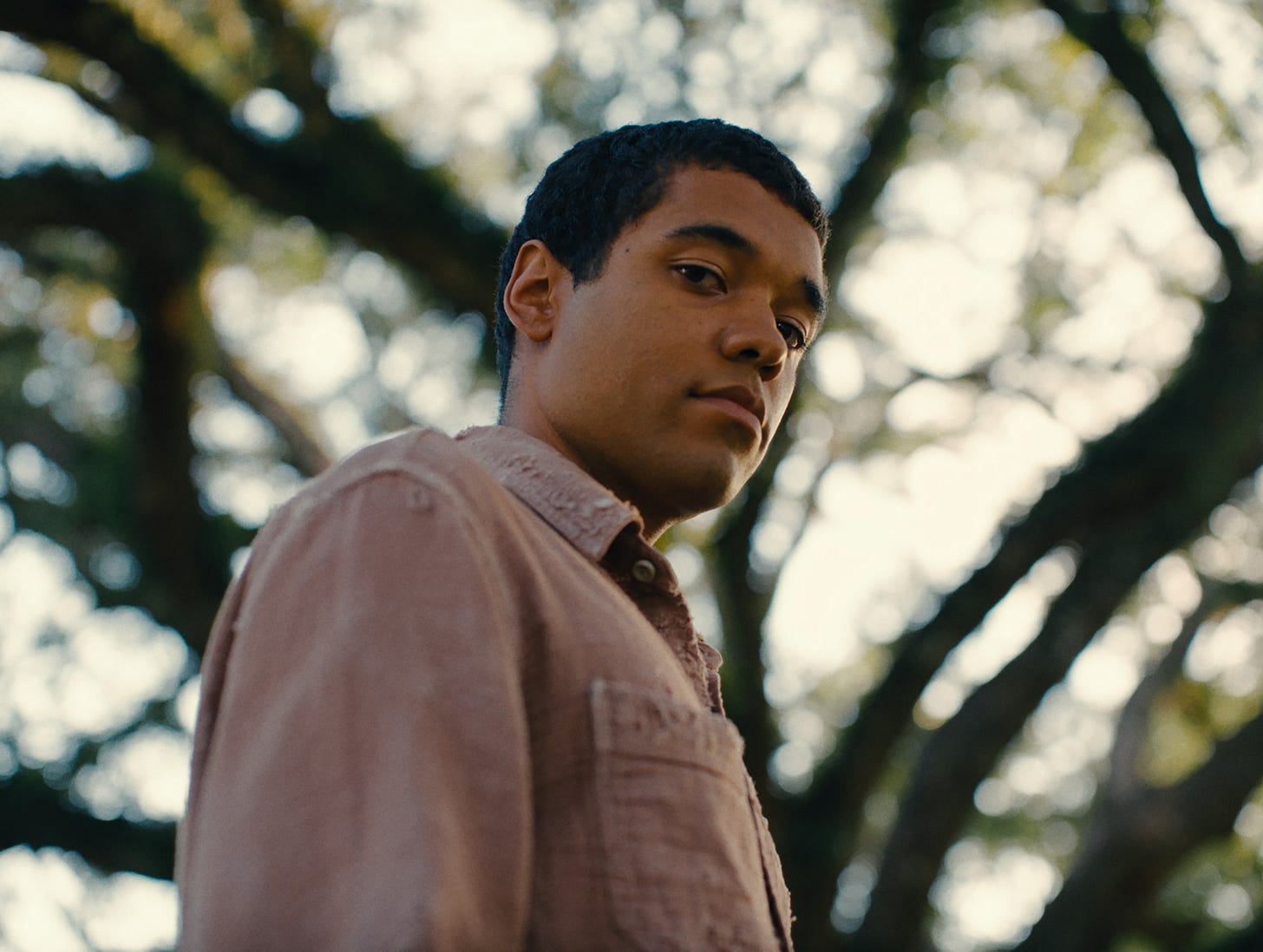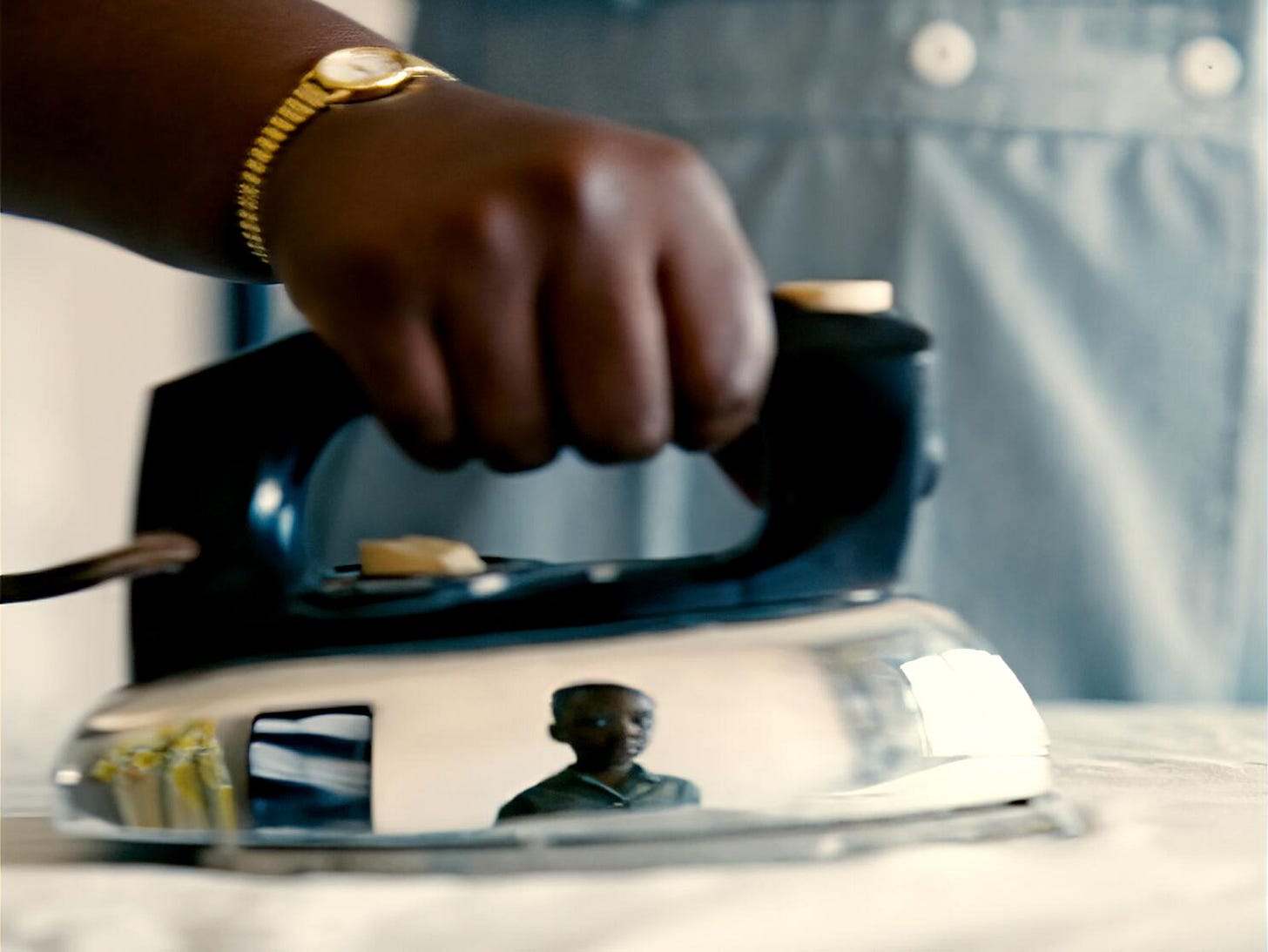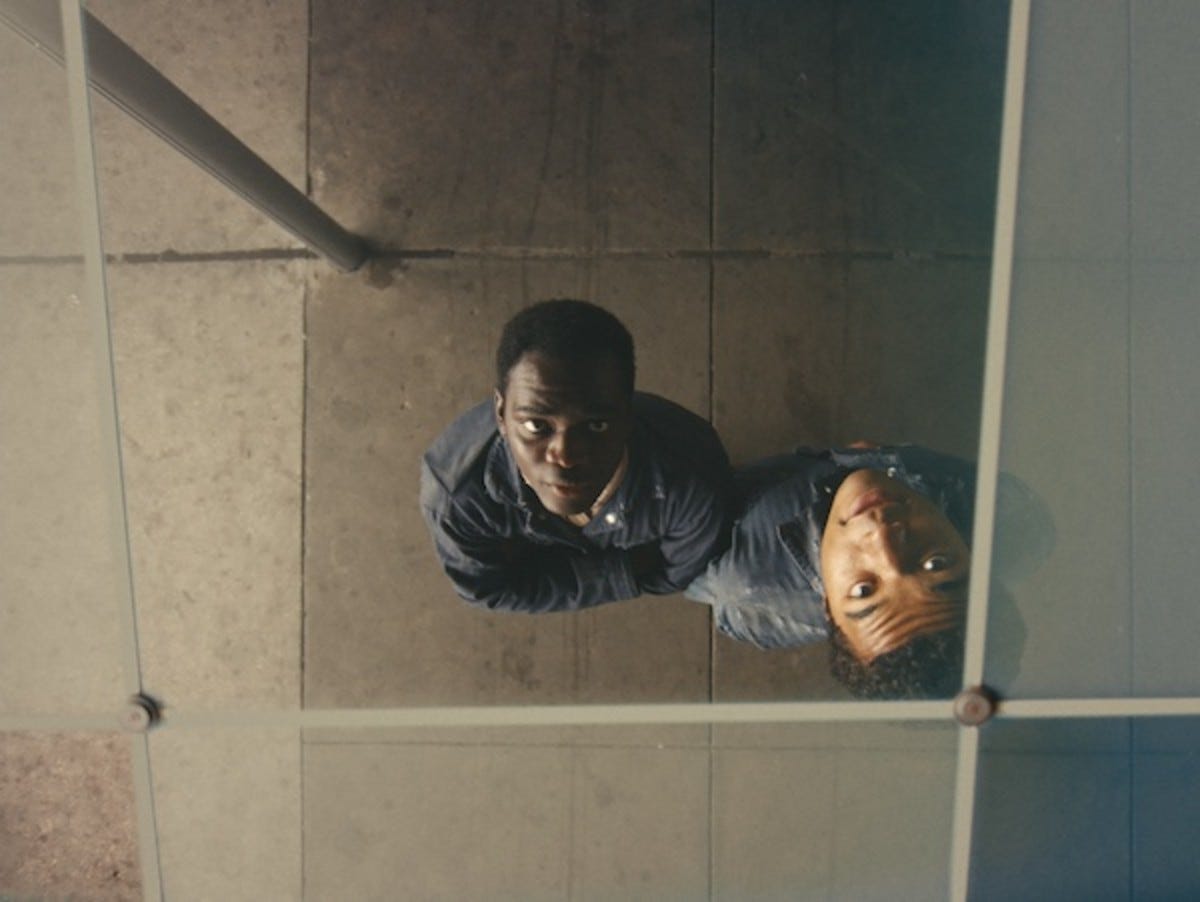Ramell Ross broke through TIFF at this past year’s festival with Nickel Boys. Known for directing the 2018 documentary Hale County This Morning, This Evening directs his feature film debut with a script co-written by Joslyn Barnes. The film drew eyeballs because of Ross’s inventive visual approach, placing the viewers in direct POV of the characters for over an hour of the film’s runtime. Bucking film tradition, Ross documents the tribulations and trauma inflicted on a young African American who’s unjustly forced to attend reform school at Nickel Academy (based on the Florida School for Boys). Like 2023’s Zone of Interest, Nickel Boys takes a stark, intrusive look at a dark (but undiscovered) period in America’s history. Nominated for Best Picture, Ross’s latest has built quite a reputation. So, does it live up to that? Or is this another pseudo-Malick indie film obsessed with form over substance?
What is it all about?
Based on Colson Whitehead's acclaimed novel The Nickel Boys, the film follows young Elwood Curtis (Ethan Herrise), a bright Black student in 1960s Jim Crow-era Florida. His dreams are shattered when he is unjustly sent to Nickel Academy following a wrongful conviction for being at the wrong place at the wrong time. As he endures racism, abuse, and forced labor, his idealism clashes with the cynicism of fellow inmate Turner whom he befriends. Believing he can expose the school through patience and faith in the legal system, Elwood maintains hope while Turner more realistically remains complacent, hoping to be the next one out. Once the guards at Nickel Academy discover Elwood has been writing down all the abuses that have taken place, he realizes the school will soon murder him. Sensing this, Turner and Elwood lead a desperate escape attempt with tragic consequences. Through haunting flashforwards and historical montages, the film exposes the horrors of America’s history of systemic racism and the resilience of those who survived.
Homework
I want to start by acknowledging the courage to debut a film with such a bizarre, ground-breaking style. The Hollywood industry has become far too bound by convention and with the advent of AI writing screenplays in the near future, there’s a lot to be said about a creative young voice crashing through convention. Ramell Ross could have shot the same material in a classic, inoffensive style and likely grabbed a Best Picture nomination anyway, but he actually subscribes to MGM’s motto: “art for art’s sake”. Even if his distributor doesn’t. But sometimes innovation gets in the way. What Ross and many new filmmakers forget is that cinema is an emotional medium. Audiences understand little of what form does or means, they just know how it feels. Golden-age Hollywood directors understood this perfectly. Most of the material they directed was below their intellect but they took pride in entertaining audiences by manipulating their emotions without them knowing it. This isn’t to say great cinema is limited to basic entertainment. Cinema should also provoke and challenge. But, there’s a middle-ground that masters like Godard found, but unfortunately, Ross veers too far academically. Long stretches of Nickel Boys felt like an exercise in film theory better suited at the MOMA, not the Alamo Drafthouse. At times, I was more captivated by the empty seat in the row ahead than by the film itself. In all seriousness, this isn’t a quality that disqualifies Nickel Boys into being a bad film. A movie like The Zone of Interest struck me similarly in moments. While arguably a better film, there were times when the style and perspective felt merely in conversation with storytelling rather than engaging with it.
Endless Perspective
Clocking in at two hours and twenty minutes, Nickel Boys wears out your patience. Ross’s use of first-person POV is the main stylistic element that you grow tired of over time. Conversations shot in this style always rang false and took away from the performances as the off-screen dialogue gives the audience little insight into how the actors bounce off one another. Even if the cast had chemistry or gave great performances, you couldn’t tell because they weren’t on camera enough to register, losing essential nuances in the process. Instead, it felt like watching cutscenes from a video game than an actual film. Cinematographer Jomo Fray lit the film well, but the constant use of deep shallow focus eventually lost its novelty. While Ross seems clearly suited for the visual medium, working hard to use every trick in the cinematic cannon to engage the audience, the style eventually does more to attract attention to itself than involve you. More importantly, it takes away from the film’s takeaways of the black experience and the horrors inflicted by institutional racism, slowly fading in the background.
A Muddy Underbelly of America’s Past
In terms of thematic exploration, Nickel Boys grapples with complex issues like systemic oppression, racial discrimination, complacency, and trauma. However, the film's characters remain largely flat as the aforementioned innovative style stunts genuine human connection with these characters to propel us through the thought-provoking ideas. The narrative would have benefited from a deeper focus on the adult Elwood’s reformation from reform school. Tackling the trauma and mystery from that angle, we would have seen the human effect of systemic racism. How America set up black people to fail, crushing their ambition and success for generations. Seeing in spurts how a man’s life was wasted away by the actions of bigots in power was more heartbreaking than anything Ross shoots inside the school. It illuminated the extent of the horrors inflicted at Nickel Academy. I didn’t even realize the school was real and was functioning only ten years ago until I looked it up on Wikipedia afterward. To think that these schools were actively trying to erase black history through similar methods as the Nazis in 1930s Germany is outright horrifying. However, Ross shrouds these pivotal scenes with an air of mystery that you can’t comprehend the crimes in real-time. Perhaps Ross intended to highlight the American tendency to bury and obscure the past until it inevitably resurfaces. If so, this approach feels overly self-referential and leans too much into academic theorizing. Another interpretation presented sees Nickel Academy as a microcosm of institutional racism in America. However, none of these strands fully develop.
Intelligent Cinema
Ultimately, Nickel Boys feels more like an intellectual exercise than an emotionally resonant story. While its creative approach to a harrowing historical narrative is commendable, the film lingers for too long, often prioritizing its artistic vision over genuine human connection. Truffaut once noted when assessing Ingmar Bergman’s Cries and Whispers that audiences can recognize formal perfection and adjust their emotional response accordingly, but Nickel Boys fails to accomplish this feat. Yet, despite all my reservations and Nickel Boys’ many flaws, it’s undeniably a valuable exercise in film theory about a dark, forgotten moment in history. Only a man with chutzpah can pull this off. I commend Ross for taking a bold swing with his debut feature and believe he has a bright future ahead. And that’s still worth something.









Wonderful review, really excellent discussion of the form of film and how RaMell Ross’ direction, while admirable, distracted from the emotion of the story. I agree with so many points here, it feels like a hard movie to critique given the subject matter but it cannot help but feel like a missed opportunity given how exhausting the experience of watching Nickel Boys became.